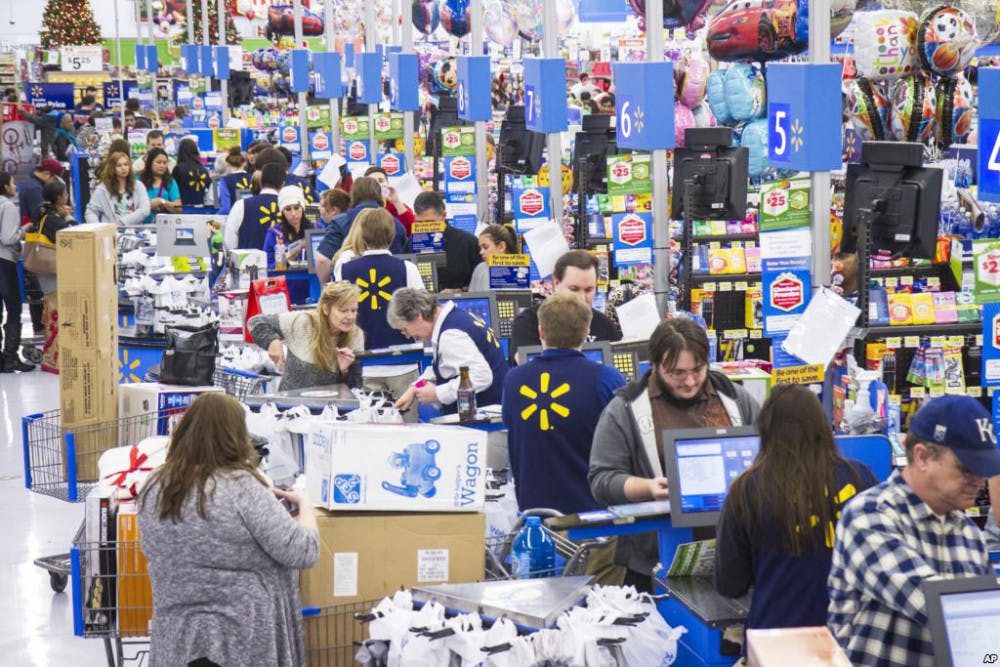By Kevin Shaw
Thanksgiving is a time to get together with the ones we love, eat the food we enjoy and be thankful for the things we are lucky enough to have — until 6:00 p.m., at least, when stores like Walmart and Target open their doors to Black Friday shoppers.
Thousands of Americans, and people all over the world, push, shove and smash their way toward fantastic deals on commercial goods mere hours after being thankful for everything they already have. During the holiday season, Black Friday shouldn’t be so prevalent.
According to a CNN article from Nov. 28, 2012, in that year, more than 306 million people went shopping over the long weekend and collectively spent $59.1 billion. That is “a 13 percent increase from $52.4 billion last year” and roughly $423 more spent per shopper.
In addition, consumers are going out earlier and earlier in the morning to pick up products.
“About 10 percent of this weekend’s shoppers were out at stores by 8 p.m. on Thursday and an estimated 28 percent of weekend shoppers were at the stores by midnight,” according to the same CNN article.
That means that the employees of these stores have to be at work earlier and earlier each year.
TheBlackFriday.com shows that some people have to be up and at work as early as 4 a.m. after Thanksgiving. These insane hours could potentially ruin people’s holidays by forcing them to leave their family and friends early to be back home in time for work, or not allowing them to go to relatives’ houses at all, depending on how far the drive is. The worst thing is that Black Friday doesn’t just ruin people’s holidays. It is potentially life-threatening.
Putting a large amount of rowdy people in a confined space, like a mall or department store, is not a good idea. Throw in a limited amount of 80 percent off televisions or buy-one-get-three-free video games and you have a recipe for disaster. And disaster is exactly what happens year after year.
BlackFridayDeathCount.com, an aptly-named website, tracks online articles featuring injuries, and even deaths, caused by this massive sales event. Since 2006, 98 people have been injured and seven people have died in Black Friday-related incidents.
Seven deaths out of the hundreds of millions of people shopping is a small percent, but that percent should be zero. Imagine if every time you went to the food store you had a small percent chance of being trampled to death as the cookie shelf was being stocked, or being stabbed over the last package of hot dog rolls. You wouldn’t go shopping, at least not in person, which is why many Americans are turning to online websites to purchase their holiday gifts after Thanksgiving.
Cyber Monday is similar to Black Friday in the sense that people can receive extraordinary deals on products they want. The major difference is they get to do it with a click of the mouse from the comfort of their own home.
People can still buy all of the televisions, blenders and power tools they want, but with a significantly lower chance of death; workers don’t have to wake up at the crack of dawn to break up fights or mediate lines; and nobody gets hurt.
Cyber Monday is a much safer and efficient way to shop for the holidays, and you can stay alive in the process.
Students share opinions around campus

“It’s getting to a point where it’s very ridiculous… now it’s a safety hazard with people going out and ruining holidays for potentially good deals.”

“Oh God! The deals are usually not worth it… I went to Best Buy the night of Thanksgiving… and they had an ambulance on standby.”







